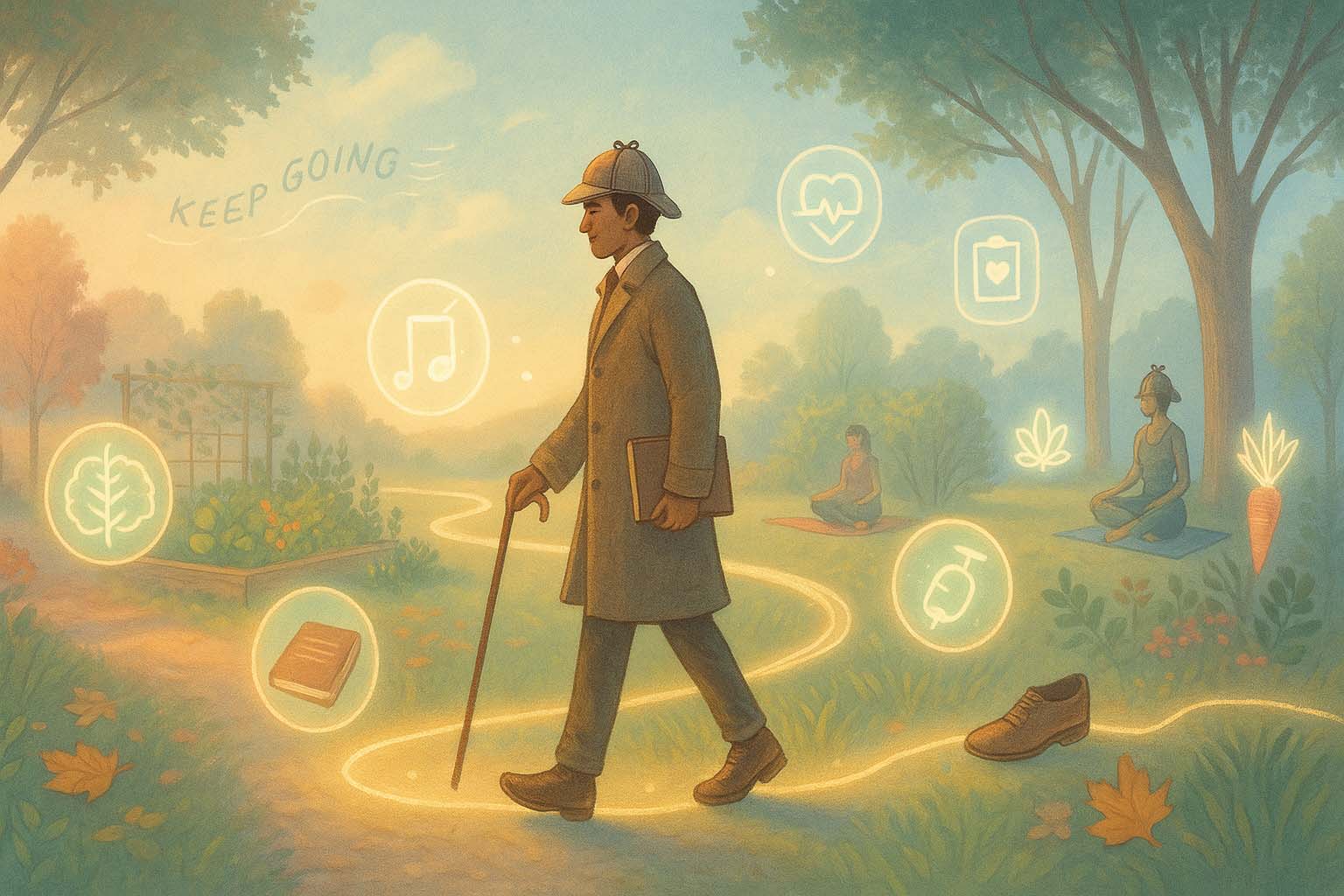
Non-Pharmacological Management
- Beyond the Pill
🧭 The Detective’s Guide to Non-Pharmacological Management
Not every case calls for chemicals.
Not every culprit yields to tablets.
Sometimes, the solution lies not in the lab—but in the landscape of life.
As a detective of health, your responsibility isn’t just to treat the diagnosis—it’s to restore balance to the scene. In many cases, that means reaching beyond the pharmacy shelves and drawing from a broader set of strategies: physical, psychological, behavioural, and environmental.
These are the non-pharmacological interventions—the quiet reforms, structural reinforcements, and subtle nudges that bring the patient’s system back to stability.
🧘 Lifestyle Modifications: Rewriting the Routine
Every mystery unfolds in context—and for most chronic conditions, that context is lifestyle.
- Nutrition: In hypertension, diabetes, or obesity, the investigation often leads to the kitchen. Reducing salt, cutting down on processed sugars, or increasing fibre can shift the plotline dramatically.
- Exercise: A daily walk might not make headlines, but it’s a powerful sidekick—lowering cardiovascular risk, lifting mood, and improving sleep.
- Sleep hygiene: No late-night screen time. No caffeine before bed. No chaotic schedules. The body’s clock needs protecting like any good alibi.
Small changes, big ripples. In these cases, the best detectives don’t issue warnings—they collaborate on redesigning daily life.
🏃♂️ Physiotherapy & Occupational Therapy: Restoring Movement and Meaning
Sometimes the culprit isn’t inside the body—it’s the way the body has adapted (or failed to).
- Physiotherapy: For joint pain, muscle injury, or stroke recovery, these are the movement mechanics. They strengthen, stretch, and stabilise, returning patients to functionality without pills.
- Occupational Therapy: When daily life feels out of reach—due to injury, disability, or fatigue—OTs step in. They modify the environment, retrain lost skills, and help patients re-enter their own story.
Like forensic engineers at a crime scene, these professionals study the way systems function and break—and teach how to rebuild from within.
🧠 Psychological Therapies: Speaking with the Mind
When the mystery lies in thoughts, feelings, or fears, no blood test will suffice.
- Cognitive Behavioural Therapy (CBT): Teaches patients to interrogate their own thought patterns—challenging false leads and emotional traps.
- Counselling: Offers a safe room for exploration, validation, and emotional unburdening.
- Mindfulness-based approaches: Invite stillness and presence, especially in anxiety, chronic pain, or trauma recovery.
These approaches respect that not all healing is chemical. Sometimes, the wound is narrative—and requires rewriting.
🧑⚕️ Patient Education: Arming the Ally
No detective works alone—and no patient should be left uninformed.
Educating patients about their condition empowers them to participate in the solution:
- Explaining the diagnosis in simple, clear terms.
- Discussing warning signs—what to monitor, when to worry.
- Providing self-management strategies—from peak flow diaries in asthma to home BP tracking in hypertension.
Knowledge isn’t just power—it’s protection. The more the patient understands, the stronger their role as co-investigator in their care.
🔧 Social & Environmental Adjustments: Fixing the Scene
Sometimes, the risk isn’t biological at all—it’s social.
- Linking with social services when housing, finance, or food insecurity impacts health.
- Connecting with community supports like peer groups or day programs.
- Modifying home environments to reduce falls, injuries, or stress.
You wouldn’t leave a crime scene unsecured. Why leave a vulnerable patient in a context that keeps recreating risk?
🗡️ Surgical or Procedural Referrals: Calling in the Specialists
When the case escalates beyond general tools, you call in your tactical unit.
- Surgery for tumours, obstructions, fractures, or severe organ damage.
- Endoscopy, cardiac catheterisation, or joint replacement—targeted interventions that restore form or function.
- Specialist rehabilitation post-trauma or stroke, where recovery depends on intensive multidisciplinary care.
Referring isn’t a retreat—it’s recognition that some cases require specialist interrogation and intervention.
🕯️ Final Word from Medlock
Sometimes the strongest medicine isn’t a drug at all. It’s a habit, a hope, a hand on the shoulder.
A new routine. A better chair. A courageous conversation.
As a clinical detective, you must learn to treat beyond the bloodstream. Use all your senses, your partners, and your tools—not just the ones that come in blister packs.
Because healing is not just what happens in the body—it’s what happens in the whole life surrounding it.
